Efest PRO C2 Charger 2017
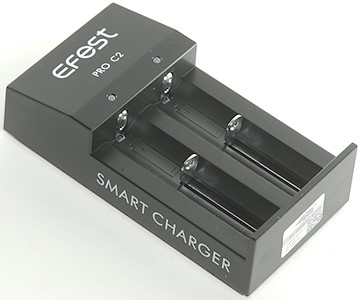
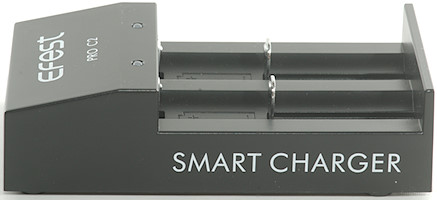
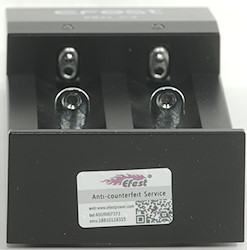
This is a simple dual cell mains and 12V powered LiIon charger without any settings.
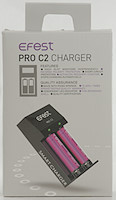



It arrived in a small cardboard box with specifications on it.
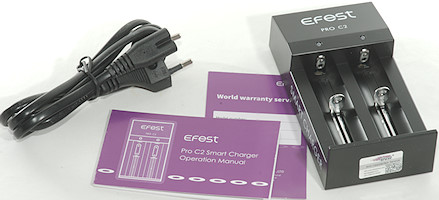
The box included the charger, a mains cable, a warranty card and the instruction sheet.
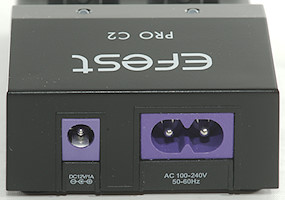
The charger has a mains socket with universal power (100-240VAC 50/60Hz) and a 12V DC connector.
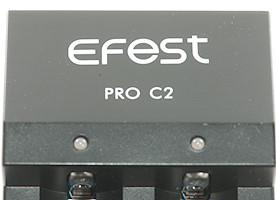
The only user interface is a led light for each channel, it is red when charging and green at other times.
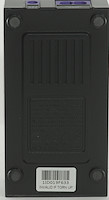
Specifications are on the bottom, but not very easy to read.

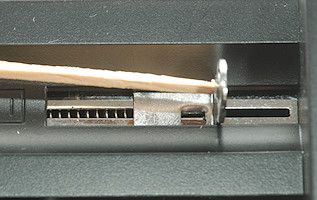
The slots uses the classical slider construction and it works fine.
The slots can work from 30.5 mm to 71mm. This means that it will handle nearly all 18650/26650 batteries.

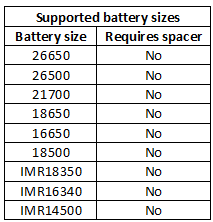
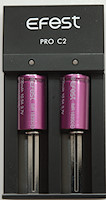
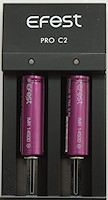
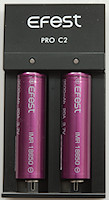
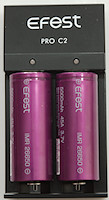
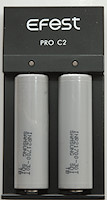
The charger can handle 71 mm long batteries including flat top cells.
The charger current is on the high side for regular small cells, but acceptable for IMR batteries
Measurements
- When not connected to power it will discharges with less than 0.3mA.
- When power is connected with a full battery, the charger will discharge with less than 0.5mA
- Below 0.6V the charger will not detect a battery
- Between 0.6V and 2.9V the charger will charge with about 70mA to 100mA
- Above 2.9V the charger will use regular charging.
- Charger will restart when voltage drops slightly.
- It will restart charging on reinsertion of the battery or power cycling.
- Power consumptions when idle without battery is 0.3 watt
- From 12V it need 14mA when idle without battery.
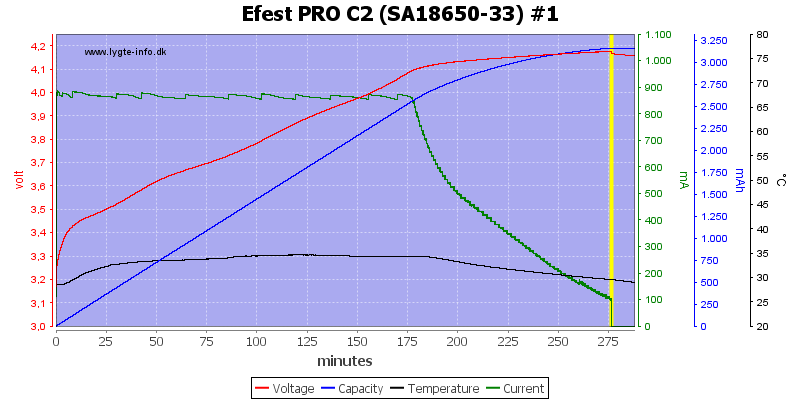
This is a nice CC/CV charge curve with a 100mA termination.
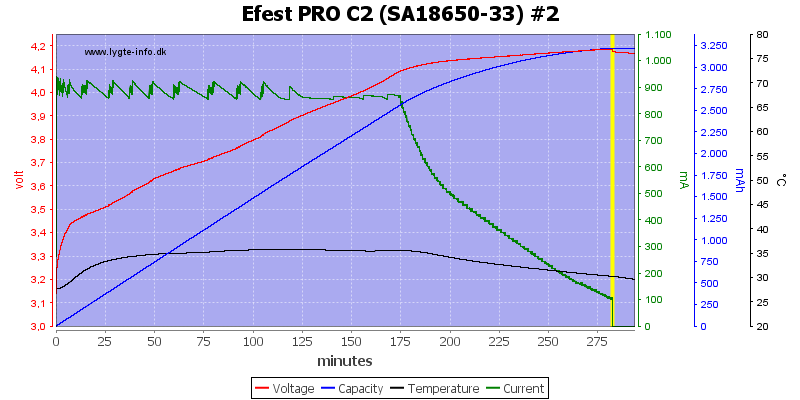
The second slot behaves the same.
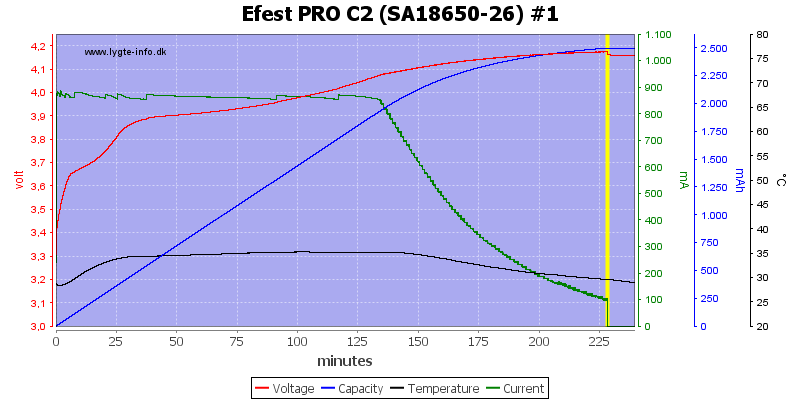
Lower capacity is faster to charge.
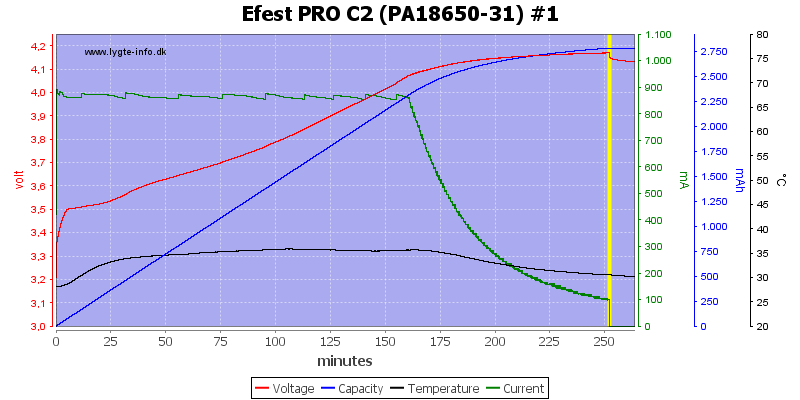
This cell is also handled fine.
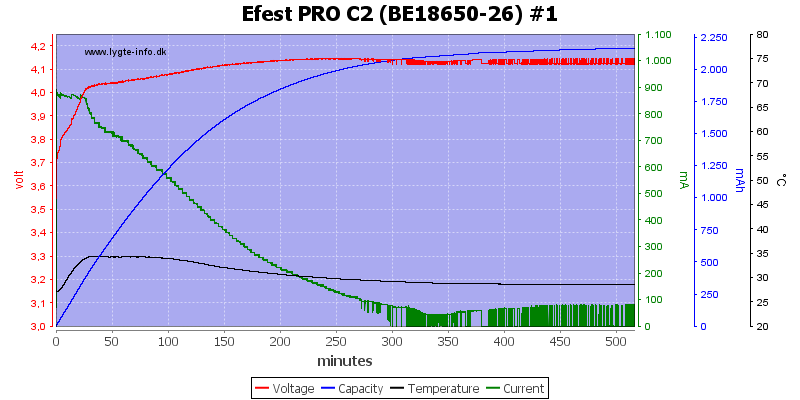
But a old worn down cell has termination problems.
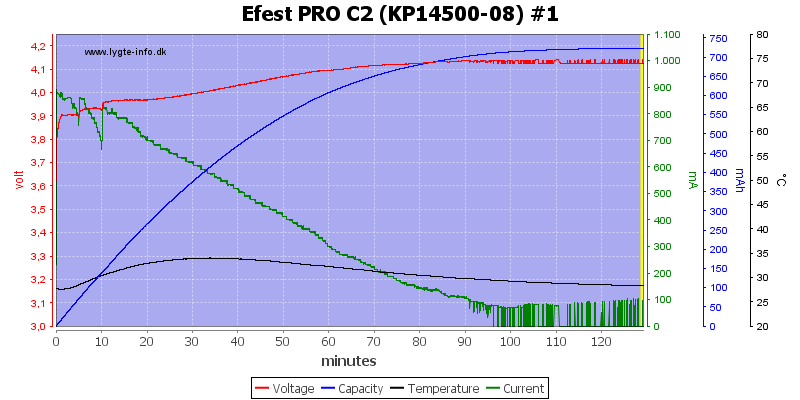
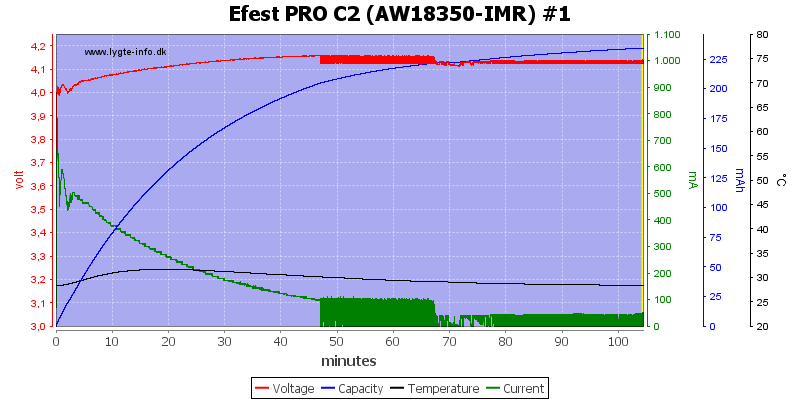
It is the same with smaller cells, but the charger is not really designed for this type of cells (They need to be high current types).
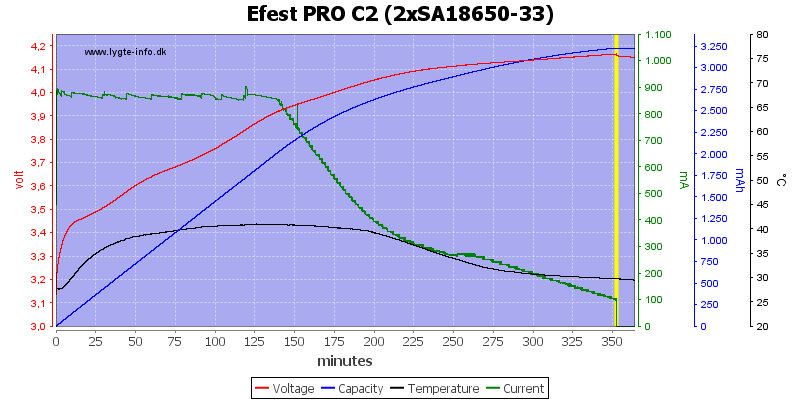
Two cells are also handled fine.
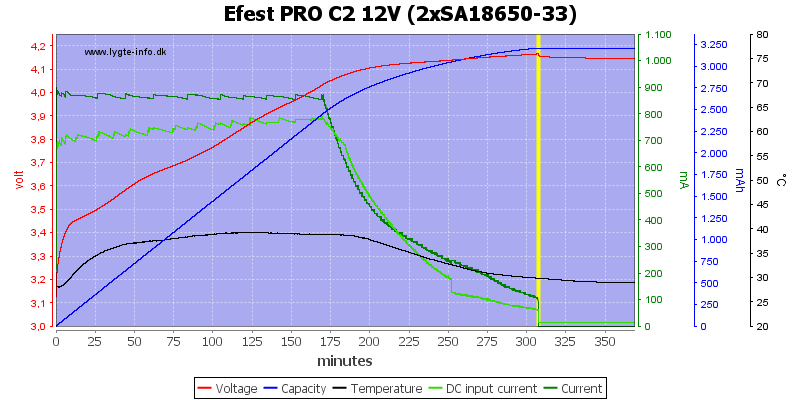
Running it from a 12V supply it can be seen that it needs about 0.8A for charging two cells.
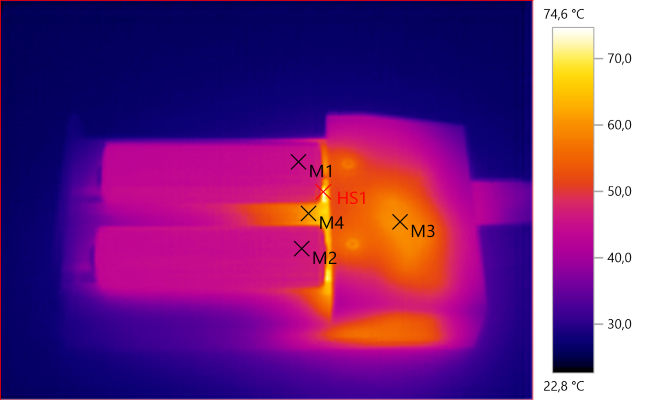
M1: 45,2°C, M2: 46,2°C, M3: 59,5°C, M4: 61,2°C, HS1: 74,6°C
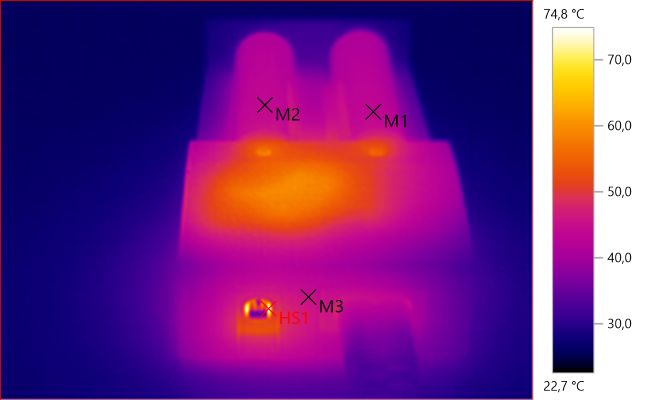
M1: 43,9°C, M2: 44,3°C, M3: 45,1°C, HS1: 74,8°C
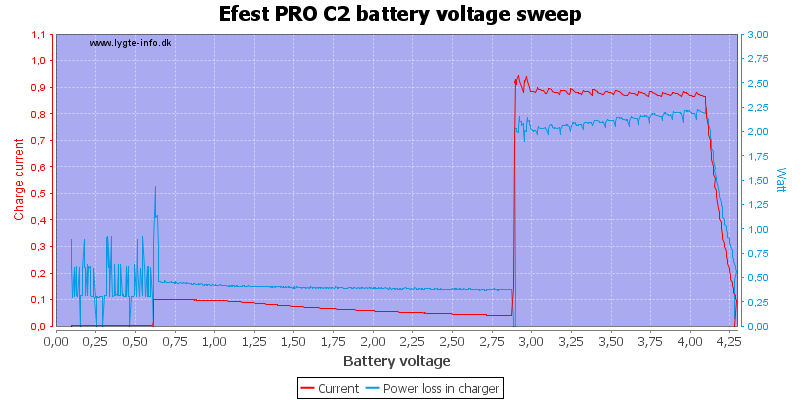
Sweeping the battery voltage from zero to 4.25 shows charge current at the different charge levels.
I did also add a curve to show how much heat is generated in the charger, most of the time the voltage will be between 3.5V and 4V, i.e. a bit above 2 watt with one cell.
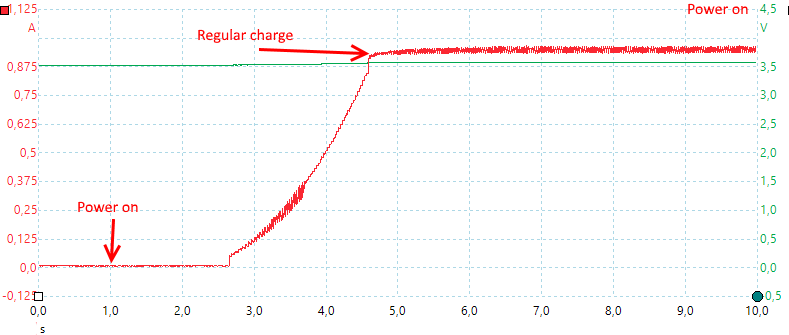
The charger needs about 3.5 second to start.
Testing the power supply with 2830 volt and 4242 volt between mains and low volt side, did not show any safety problems.
Conclusion
For new and IMR (High current) batteries this charger work fine, but with older cells it has termination problems.
Notes
The charger was supplied by Efest for review.
Here is an explanation on how I did the above charge curves: How do I test a charger
































